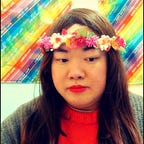Why I Left the Left and the Right #4: How To Move Forward
Let’s start by looking back. When I first started this project, this show, several years ago, what I wanted to do was to talk about ideas from different people and different factions of society. I wanted to be part of the ongoing cultural and political conversation in the Western world, which was at one of its most heated points in recent history. I was increasingly frustrated about the state of the conversation, with its polarization, division, but also conformity within echo chambers, acceptance of faulty reasoning on both sides, rise of what I consider extreme ideologies, and so on. I wanted to bring a better approach to the table.
Anyway, some people were also voicing the discomfort I had, with the changes I was seeing. These included both people I consider moderately liberal, as well as moderate conservatives. I was probably closer to the liberal camp rather than the conservative camp, but what I saw was that, if we could work together, we would be able to effectively push back and restore the sanity. So I decided to see if I could bring the ideas and arguments from the two sides together, to try and find some common ground. This is why, early on, this show was called Daily Centrist. I was trying to act as the ‘centrist’, to bring the ideas and frustrations of the two sides together, to find common ground on which we could move forward.
By around 2019, however, the political landscape had further fractured, and now I could see that there were at least six or seven big factions along the political spectrum, or rather, the political map, because it clearly had more than one dimension. I stopped calling myself a ‘centrist’ because that term became less meaningful with this new development. Instead of just looking to find common ground among two factions, I expanded to try and find common ground between multiple factions, which both overlapped and conflicted depending on the issue we were talking about. Old school ‘two big coalitions’ politics was breaking down almost completely, and as a Moral Libertarian who believes in independent thinking, I loved it. I became particularly interested in the people who tried to bridge the newly formed factions, like I was doing. I was convinced that this was the politics of the future. Decentralized, spontaneous, flexible in its alliances, and so on.
And then, 2020 came. The end of the Democratic primaries meant that American politics settled firmly back into two big camps, and much of the rest of the Western world followed suit. Biden’s history of bipartisanship initially gave me hope that he would evolve into one of those people who wanted to bridge the divides, but so far, I’ve not seen any indication that he wants to move that way. Maybe, with the base he now has, he couldn’t do it even if he wanted to. Meanwhile, a new wave of social movements served to further the popularization of things like cancel culture. Even a letter supporting free speech, signed by prominent left-wing intellectuals like Noam Chomsky, got attacked by the new wave of cultural warriors. On the other side, the Trump campaign also happily encouraged polarization over these events, for its own political purposes. Of course, the culture wars also mean that nothing is being done about the important issues, like the dwindling prospects for young people, the rise of automation, the health of families and the social fabric, housing affordability, and so on. Let’s face it: 2020 was a big disappointment, a major setback for people with priorities like myself.
So, where do we go next? I have spent much of 2021 so far quite directionless, not knowing what exactly to do, to be honest. The cultural and political landscape looks pretty much like a war torn wasteland these days, to be honest. But what I have learned is that, there is hope in ideas, and there is hope in conversations. This is why, going forward, I will be exploring interesting ideas across the political spectrum once again. Through ideas and conversations, we can once again get inspired, find common ground, and find the will to work together on practical issues again. In particular, through exploring diverse ideas, I hope to help build a new politics that is progressive, in the sense of forward looking, but also not tied to the dogma of the so-called theories coming from the Left or the Right. I will talk about that more next time.
TaraElla is a singer-songwriter and author, who recently published her autobiography The TaraElla Story, in which she described the events that inspired her writing.
She is also the author of the Moral Libertarian Horizon books, which argue that liberalism is still the most moral and effective value system for Western democracies in the 21st century.
